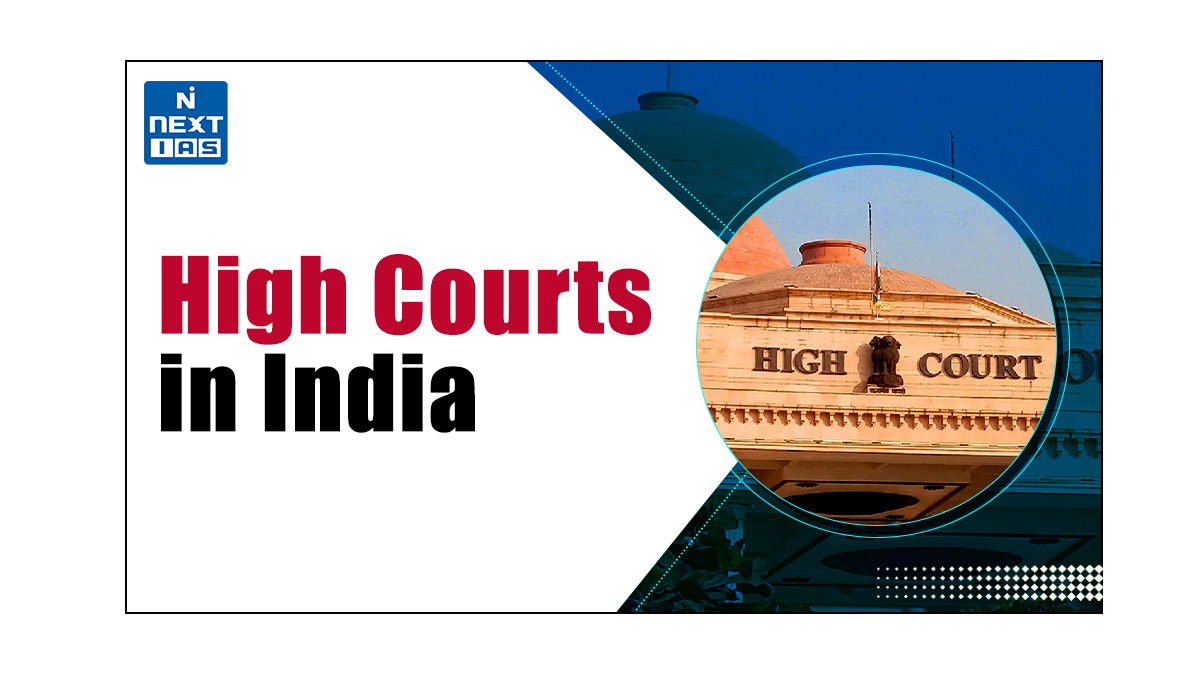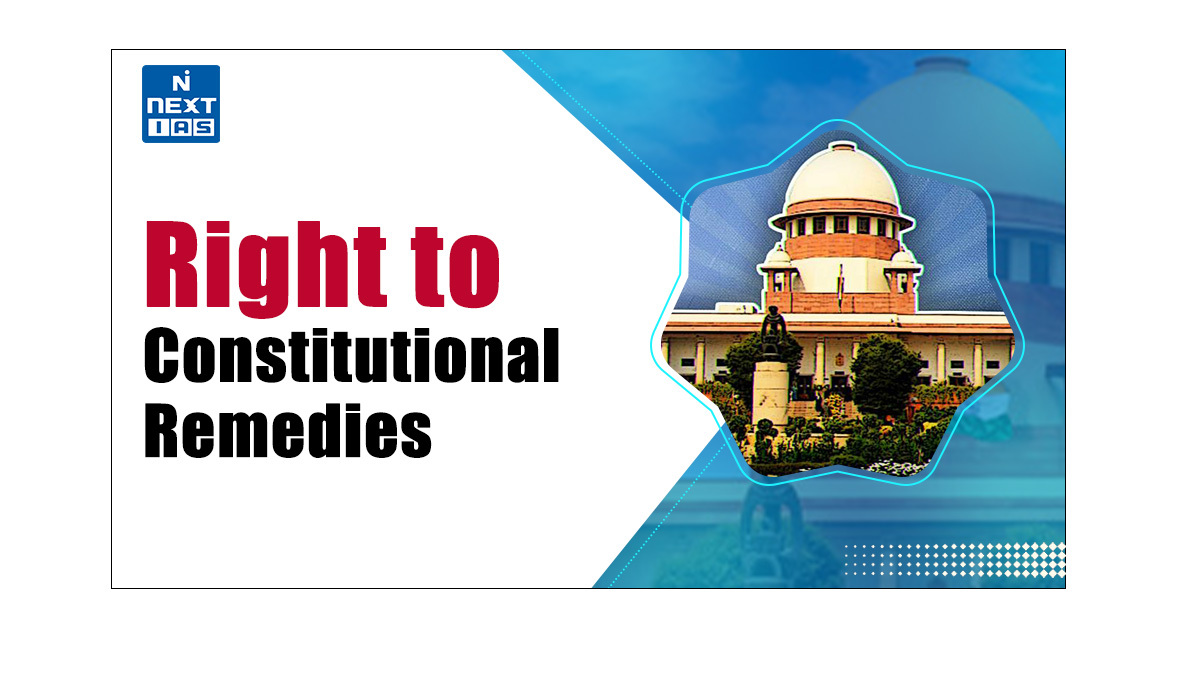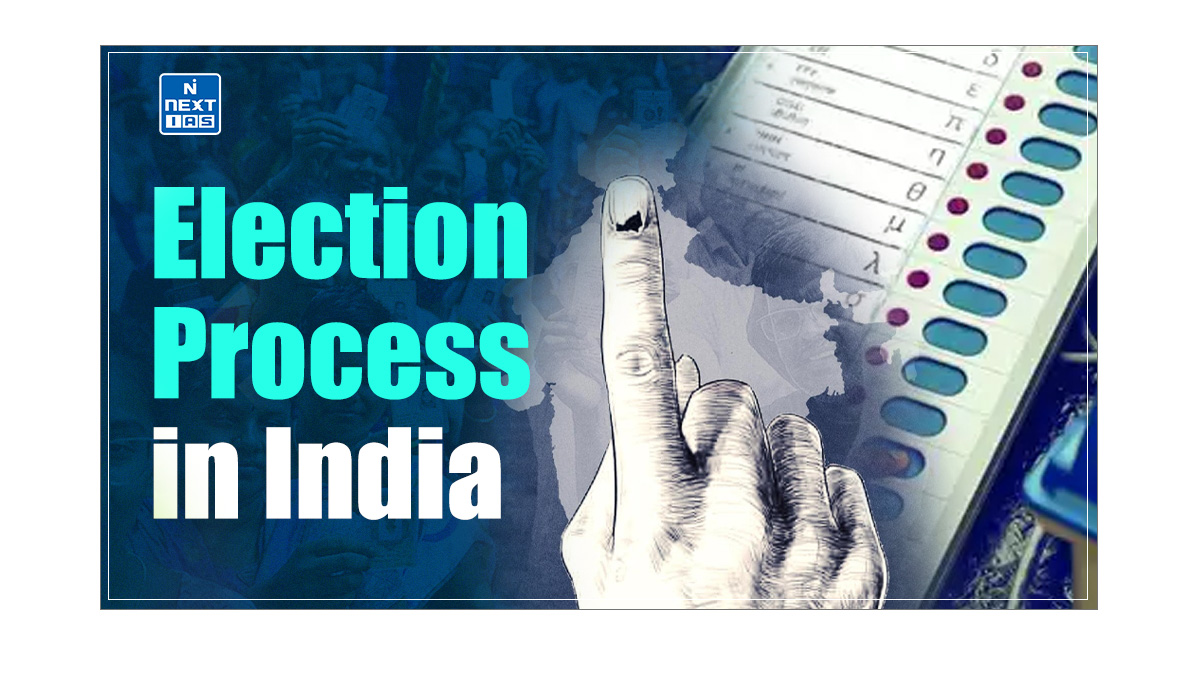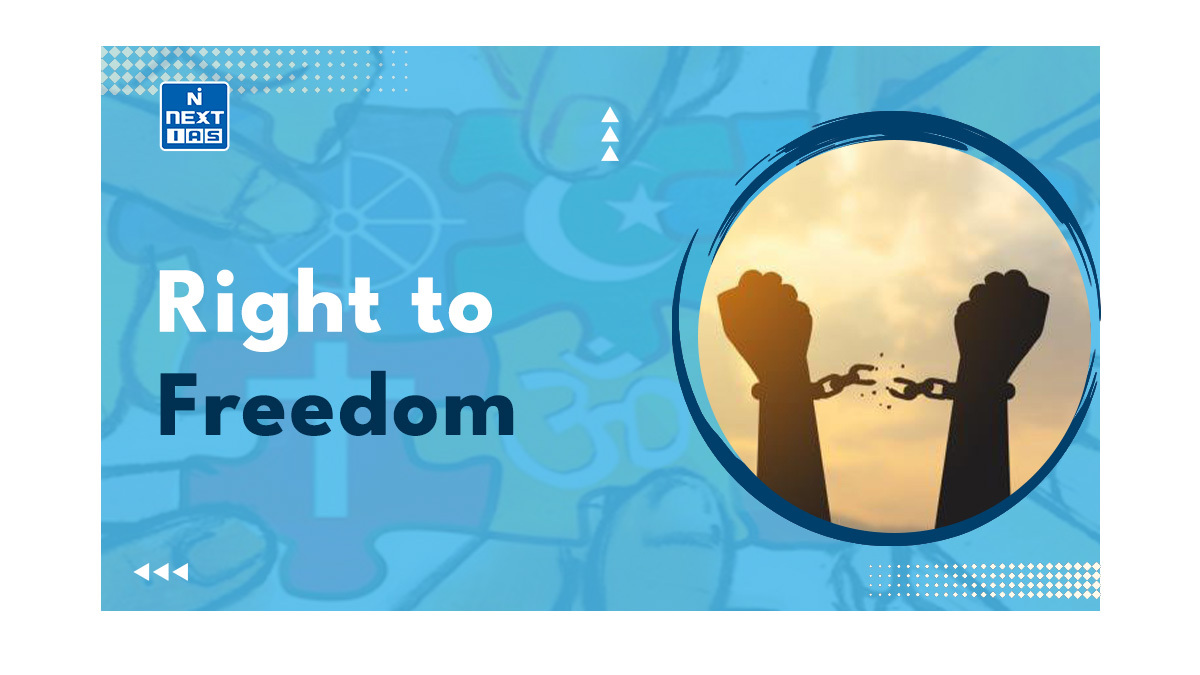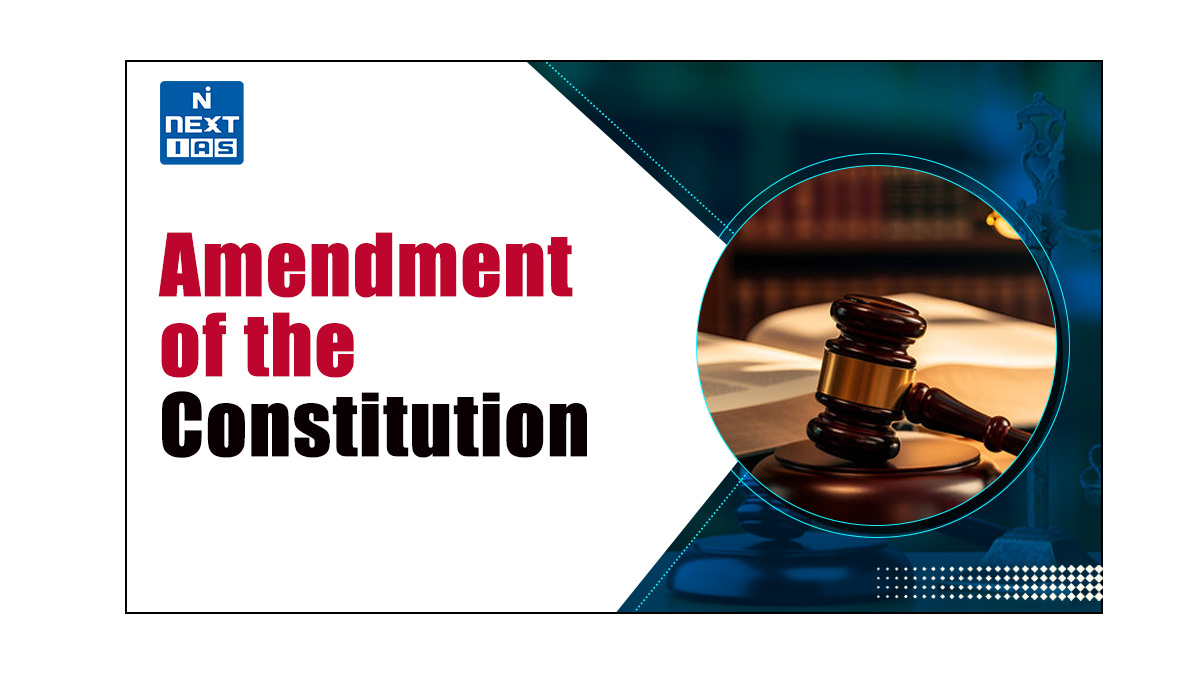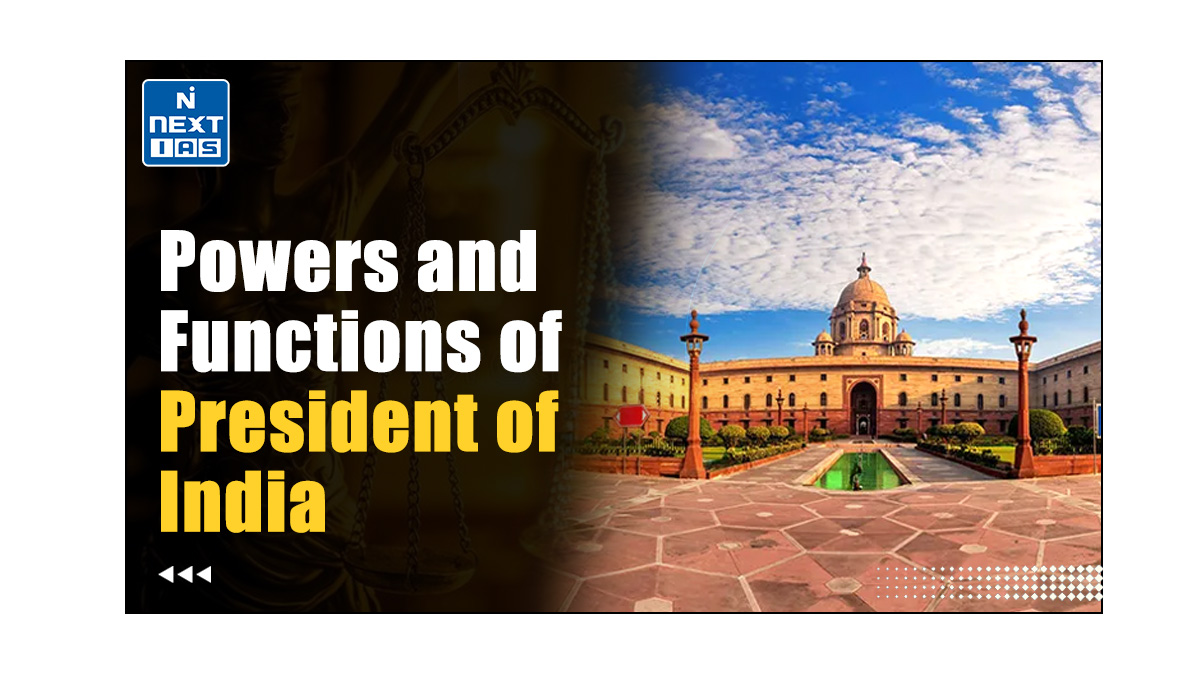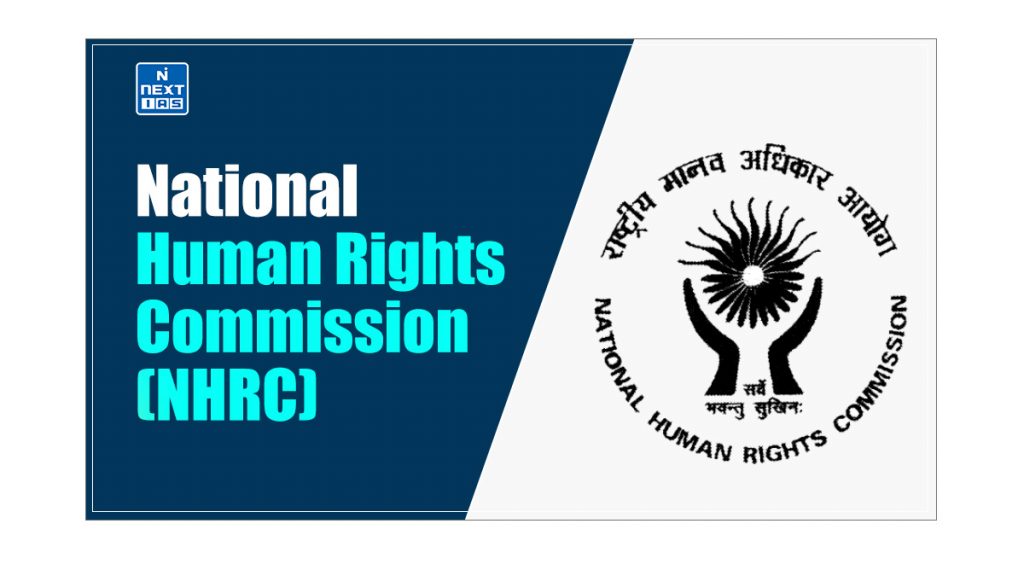
The National Human Rights Commission (NHRC), a statutory body in India, stands at the forefront in the noble pursuit of safeguarding, protecting, and promoting human rights across the nation. By safeguarding liberties, advocating for justice, and fostering a culture of respect for human rights, the NHRC not only protects individuals but also strengthens the foundations of democracy. This article of NEXT IAS aims to study in detail the National Human Rights Commission (NHRC), including its composition, powers, functions, challenges faced by it, and other related aspects.
About National Human Rights Commission (NHRC)
- The National Human Rights Commission (NHRC) is a statutory body in India, established under the provisions of the Protection of Human Rights Act of 1993.
- Thus, it is not a constitutional body.
- It serves as the watchdog of human rights in the country.
- It is tasked with safeguarding rights relating to life, liberty, equality, and dignity of individuals, which are guaranteed by the Constitution of India and embodied in the international covenants.
- The Headquarters of the National Human Rights Commission is in New Delhi.
- The Commission can also establish offices in other places in India.
| What are Human Rights? – As per the UN definition, ‘Human rights are those rights that are inherent to all human beings, regardless of race, sex, nationality, ethnicity, language, religion, or any other status’. – These human rights are entitled to everyone without any discrimination. – Human rights include the right to life and liberty, freedom from slavery and torture, freedom of opinion and expression, the right to work and education, and many more. – Human Rights Day is observed on 10 December every year. |
Objectives of National Human Rights Commission
The specific objectives of the establishment of the National Human Rights Commission are as follows:
- To strengthen the institutional arrangements through which human rights issues could be addressed in their entirety in a more focussed manner,
- To look into the allegations of excesses, independently of the government, in a manner that would underline the government’s commitment to protect human rights,
- To complement and strengthen the efforts that have already been made in this direction.
Composition of National Human Rights Commission (NHRC)
The commission is a multi-member body consisting of the following full-time members:
- A Chairperson, and
- 5 other members
In addition to these full-time members, the commission also has the following 7 ex-officio members:
- Chairperson of the National Commission for Minorities,
- Chairperson of the National Commission for SCs,
- Chairperson of the National Commission for STs,
- Chairperson of the National Commission for Women,
- Chairperson of the National Commission for BCs,
- Chairperson of the National Commission for the Protection of Child Rights, and
- The Chief Commissioner for Persons with Disabilities.
Qualifications of Members of NHRC
The qualifications of full-time members of the National Human Rights Commission (NHRC) are as follows:
| Chairperson | A retired Chief Justice of India or a Judge of the Supreme Court. |
| 1st Member | A serving or retired Judge of the Supreme Court |
| 2nd Member | A serving or retired Chief Justice of a High Court |
| 3rd, 4th and 5th Member | Persons having knowledge or practical experience with respect to human rights. Note: Out of these three members, one should be a woman. |
Appointment of Members of National Human Rights Commission
The Chairperson and the members of the National Human Rights Commission are appointed by the President on the recommendations of a six-member committee consisting of:
- The Prime Minister as its head,
- The Speaker of the Lok Sabha,
- The Deputy Chairman of the Rajya Sabha,
- The Leader of the Opposition in the Lok Sabha,
- The Leader of the Opposition in the Rajya Sabha, and
- The Union Home Minister,
| Note: A sitting judge of the Supreme Court or a sitting Chief Justice of a High Court can be appointed only after consultation with the Chief Justice of India. |
Term of Members of National Human Rights Commission
- The Chairperson and the members of NHRC hold office for a term of 3 years or until they attain the age of 70 years, whichever is earlier.
- The Chairperson and other members are eligible for re-appointment in NHRC.
- After their tenure, the Chairperson and the members are not eligible for further employment under the Central or State Government.
Removal of Members of NHRC
- The President can remove the Chairperson or any member from the office if he/she:
- is adjudged insolvent,
- engages, during his term of office, in any paid employment outside the duties of his office,
- is unfit to continue in office because of the infirmity of mind or body,
- is of unsound mind and stands so declared by a competent court,
- is convicted and sentenced to imprisonment for an offence.
- The President can also remove the Chairperson or any Member on the grounds of proved misbehaviour or incapacity.
- However, in these cases, the President has to refer the matter to the Supreme Court for an inquiry.
- If the Supreme Court, after the inquiry, upholds the cause of removal and advises so, then the President can remove the Chairperson or a member of NHRC.
Salaries and Service Conditions of Members of NHRC
- The salaries, allowances, and other conditions of service of the Chairperson or a member are determined by the Central Government.
- They cannot be varied to his/her disadvantage after his/her appointment.
Functions of the NHRC
The major functions of the National Human Rights Commission (NHRC) are:
- To inquire into any violation of human rights or negligence in the prevention of such violation by a public servant, either suo motu or on a petition presented to it or on an order of a court.
- To intervene in any proceeding involving an allegation of violation of human rights pending before a court.
- To visit jails and detention places to study the living conditions of inmates and make recommendations thereon.
- To review the constitutional and other legal safeguards for the protection of human rights and recommend measures for their effective implementation.
- To review the factors including acts of terrorism that inhibit the enjoyment of human rights and recommend remedial measures.
- To study treaties and other international instruments on human rights and make recommendations for their effective implementation.
- To undertake and promote research in the field of human rights.
- To spread human rights literacy among the people and promote awareness of the safeguards available for the protection of these rights.
- To encourage the efforts of non-governmental organizations (NGOs) working in the field of human rights.
- To undertake such other functions as it may consider necessary for the promotion of human rights.
Working of National Human Rights Commission
- The commission has its own nucleus of investigating staff for investigation into complaints of human rights violations.
- It can also utilize the services of any officer or investigation agency of the Central or any state government for investigating purposes.
- The Commission has also established effective cooperation with the NGOs to receive first-hand information about human rights violations.
Powers of NHRC
- The NHRC is vested with the power to regulate its own procedure.
- It has all the powers of a Civil Court and its proceedings have a judicial character.
- It may call for information or reports from the Central and State Governments or any other subordinate authority thereof.
- The Commission is not empowered to inquire into any matter after the expiry of one year from the date on which the Act constituting a violation of human rights is alleged to have been committed.
- In other words, it can look into a matter within one year of its occurrence.
- The Commission may take any of the following steps during or upon the completion of an inquiry:
- To recommend to the concerned government or authority to make payment of compensation or damages to the victim.
- To recommend to the concerned government or authority the initiation of proceedings for prosecution or any other action against the guilty public servant.
- To recommend to the concerned government or authority for the grant of immediate interim relief to the victim.
- To approach the Supreme Court or the High Court concerned for the necessary directions, orders, or writs.
Nature of Functions of NHRC
- The functions of the National Human Rights Commission are mainly recommendatory in nature.
- It has no power of its own to punish the violators of human rights, nor to award any relief including monetary relief to the victim.
- Its recommendations are not binding on the concerned government or authority.
- But, it should be informed about the action taken on its recommendations within one month.
Role of NHRC w.r.t. Armed Forces
- The National Human Rights Commission has a limited role, powers and jurisdiction with respect to the violation of human rights by the members of the armed forces.
- In this respect, the Commission may seek a report from the Central Government and make its recommendations based on them.
- The Central government should inform the Commission of the action taken on the recommendations within three months.
Reports of National Human Rights Commission
- The National Human Rights Commission submits its annual or special reports to the Central Government and the concerned State Government.
- These reports are laid before the respective State Legislatures, along with a memorandum of action taken on the recommendations of the National Human Rights Commission and the reasons for non-acceptance of any of such recommendations.
Issues Addressed by the NHRC
The National Human Rights Commission (NHRC) plays a significant role in addressing a wide range of issues related to human rights violations in India. Below are some examples of the issues taken up by NHRC across the country.
- Arbitrary arrest and detention
- Custodial torture and deaths
- Fake Encounters
- Communal Violence
- Atrocities committed on women and children and other vulnerable sections
- Non-payment of retiral benefits
- Child labour
- Extra-judicial killings
- Sexual violence and abuse
- LGBTQ community rights
- SCs/STs, disabled people, and other religious minority issues
- Labour rights and the right to work
- Conflict-induced internal displacement
- Manual Scavenging
Challenges faced by National Human Rights Commission
The National Human Rights Commission (NHRC) itself has identified various problems faced by it in its effective functioning. These challenges are explained below:
Administrative Constraints
- Inadequate infrastructure, including insufficient funding and staff shortages, hampers the smooth functioning of the NHRC.
- Inadequate devolution of powers to the Commission in administrative as well as financial matters.
Financial Constraints
- Dependency on annual grants-in-aid from the Ministry of Home Affairs restricts the NHRC’s financial autonomy.
- Inadequate funding limits the commission’s capacity to address emerging human rights issues and fulfil its mandate comprehensively.
Manpower Constraints
- The National Human Rights Commission (NHRC) has consistently operated below its sanctioned strength, leading to operational challenges.
- The Law Division, crucial for handling and disposing of complaints, faces manpower shortages, impacting its effectiveness in the longer run.
- A shortage of experienced investigating officers affects the conducting of spot inquiries on issues like custodial deaths, torture, and illegal detentions.
- An inadequate level of expertise of NHRC personnel in areas such as legal analysis, investigation techniques, and human rights advocacy hampers the commission’s efficacy.
Operational Constraints
- Various operational challenges mean that the NHRC struggles to meet the expectations of victims of human rights violations nationwide, hindering its mandate to protect and promote human rights.
- The commission’s limited reach and accessibility may hinder its ability to address human rights violations in remote or marginalized areas effectively.
- Limited awareness among the public about the NHRC’s mandate and functions may impede the reporting of human rights violations and access to justice for victims.
Way Forward
The following measures can be taken to address challenges faced by the commission and enhance its effectiveness:
- To provide regular training and capacity-building exercises for commission members and staff to ensure that they are equipped to handle human rights cases.
- The composition of NHRC should be diversified by including members from SCs, STs, civil society, and human rights activists.
- To address structural issues such as adequate infrastructure and regular funding to ensure smooth functioning and also address systemic issues such as corruption or lack of accountability.
- There is a need for time-bound investigations to ensure swift justice for victims of human rights violations.
- NHRC decisions should be made enforceable to increase its powers and authority.
- Simplification of the complaint process, improvement of case management, and adoption of best practices from other human rights bodies.
- Enhancing the outreach and communication by increasing its presence on social media, conducting more public hearings, and collaborating with civil society organizations and other stakeholders.
- Fostering collaboration with civil society organizations and other stakeholders to leverage resources and expertise in promoting human rights.
- Collaboration between State and Non-State actors is imperative for strengthening the human rights situation in India.
Conclusion
The National Human Rights Commission stands as a testament to the enduring commitment to human rights in the face of evolving challenges. By safeguarding liberties, advocating for justice, and fostering a culture of respect for human rights, the NHRC not only protects individuals but also strengthens the foundations of democracy. As we move forward, the continued support and enhancement of such institutions are vital to ensuring that human rights are universally respected and realized, paving the way for a more just and equitable world.
GS - 2